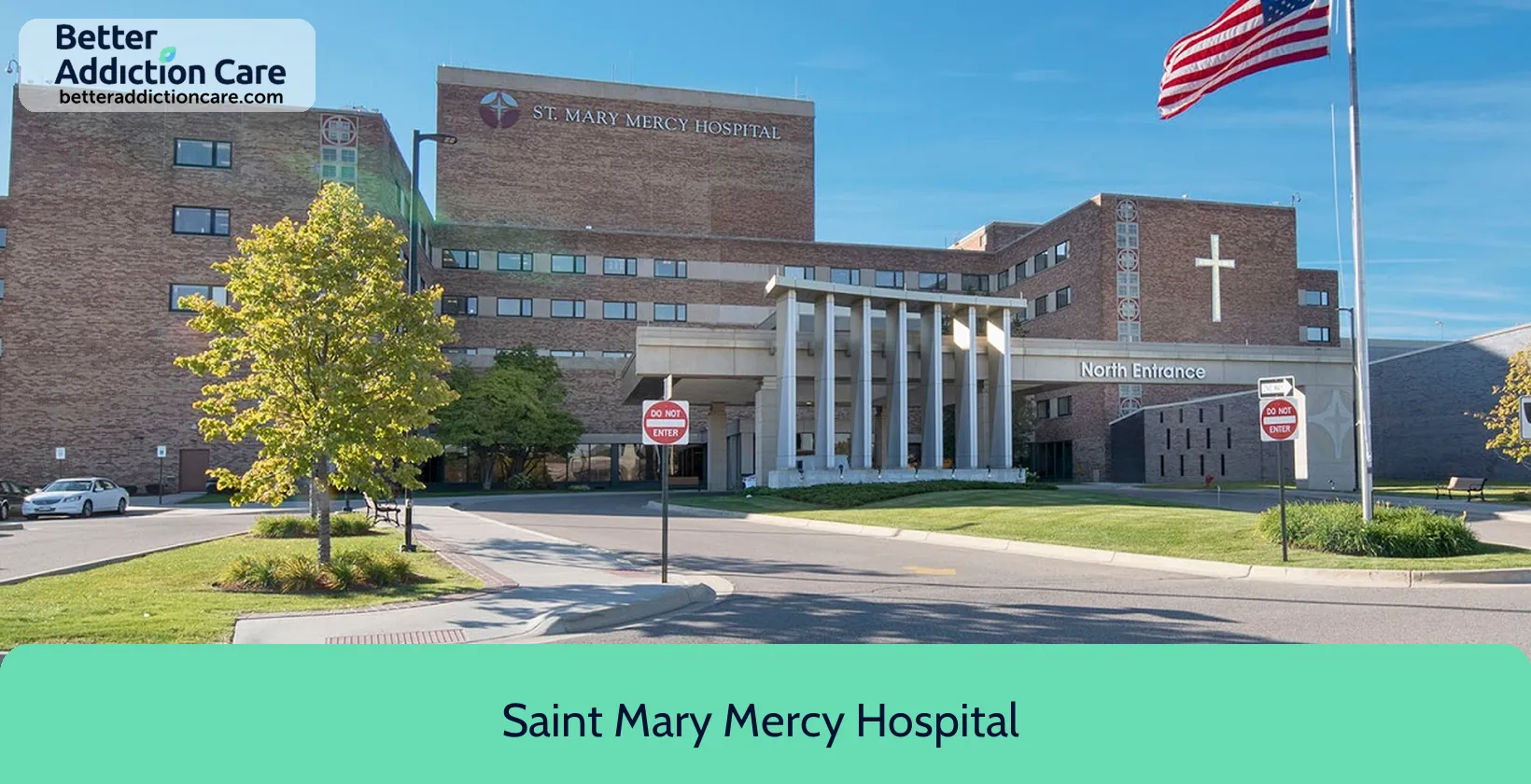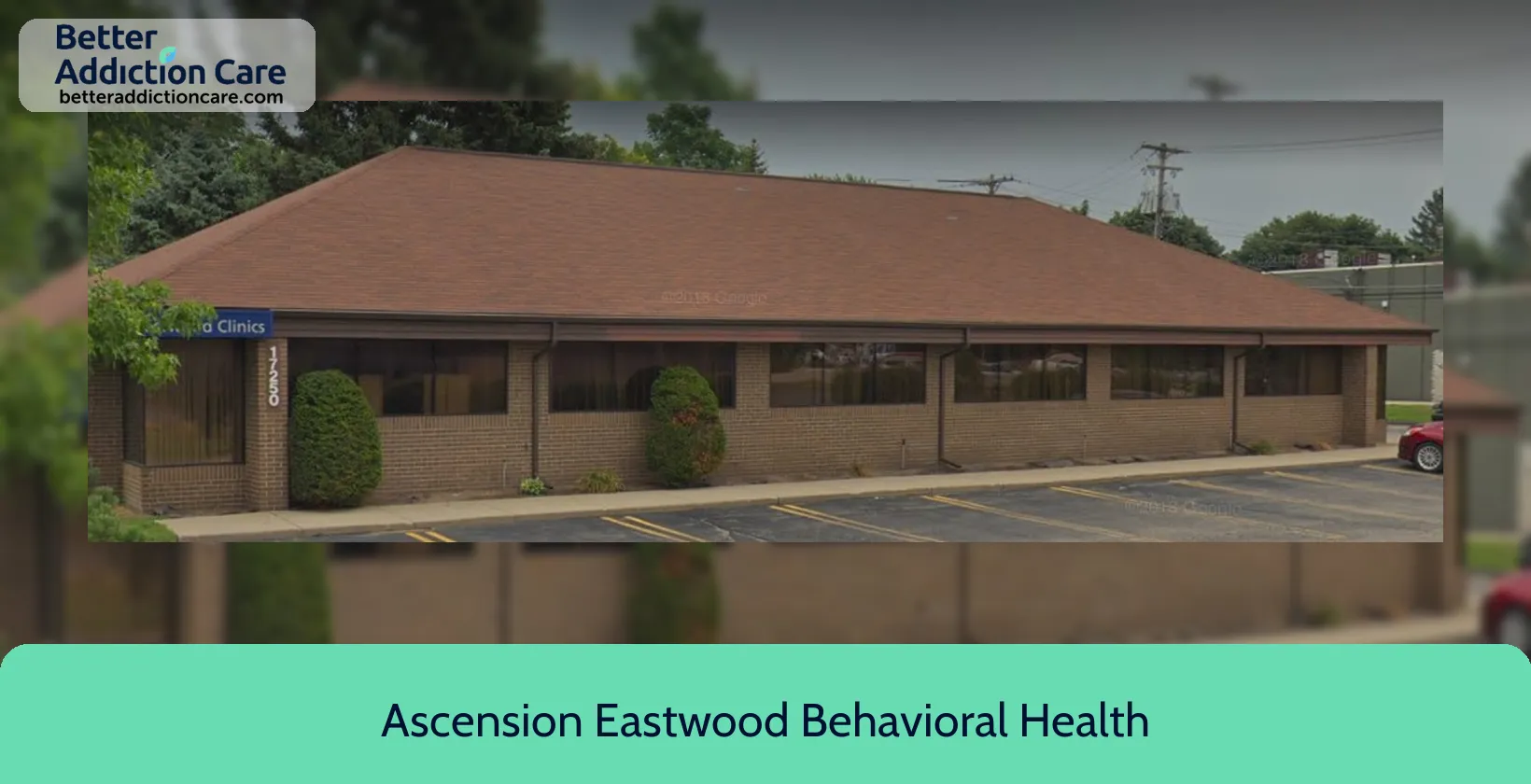Ascension Eastwood Behavioral Health
Overview
Ascension Eastwood Behavioral Health is a substance abuse treatment center for people seeking treatment near Wayne County. As part of their treatment modalities for recovery, Ascension Eastwood Behavioral Health provides individual psychotherapy, couples/family therapy, and cognitive behavioral therapy during treatment. Ascension Eastwood Behavioral Health is located in Livonia, Michigan, accepting cash or self-payment for treatment.
Ascension Eastwood Behavioral Health at a Glance
Payment Options
- Cash or self-payment
- Medicaid
- Medicare
- Private health insurance
- Federal military insurance (e.g., TRICARE)
Assessments
- Screening for tobacco use
- Comprehensive mental health assessment
- Comprehensive substance use assessment
- Screening for mental disorders
- Screening for substance use
Age Groups
- Children/adolescents
- Young adults
- Adults
- Seniors
Ancillary Services
- Case management service
- Integrated primary care services
- Suicide prevention services
- Mental health services
Highlights About Ascension Eastwood Behavioral Health
7.06/10
With an overall rating of 7.06/10, this facility has following balanced range of services. Alcohol Rehabilitation: 8.00/10, Drug Rehab and Detox: 6.00/10, Insurance and Payments: 6.53/10, Treatment Options: 7.70/10.-
Alcohol Rehabilitation 8.00
-
Treatment Options 7.70
-
Insurance and Payments 6.53
-
Drug Rehab and Detox 6.00
Accreditations
Council on Accreditation (COA):
The Council on Accreditation (COA) is a non-profit that provides accreditation to human services organizations to ensure they meet high standards in service delivery. The accreditation process involves evaluating the organization's policies, practices, and services to meet specific standards.
Treatment At Ascension Eastwood Behavioral Health
Treatment Conditions
- Mental health treatment
- Alcoholism
- Substance use treatment
- Co-occurring Disorders
Care Levels
- Outpatient
- Regular outpatient treatment
- Aftercare
Treatment Modalities
- Individual psychotherapy
- Couples/family therapy
- Cognitive behavioral therapy
- Dialectical behavior therapy
- Integrated Mental and Substance Use Disorder treatment
Ancillary Services
Languages
- Sign language services for the deaf and hard of hearing
Additional Services
- Pharmacotherapies administered during treatment
- Discharge Planning
- Breathalyzer or blood alcohol testing
Special Programs
- Clients who have experienced trauma
Get Help Now
Common Questions About Ascension Eastwood Behavioral Health
Contact Information
Other Facilities in Livonia

6.62

6.59

6.84

7.28

7.57
DISCLAIMER: The facility name, logo and brand are the property and registered trademarks of Saint Mary Mercy Hospital - Behavioral Medicine, and are being used for identification and informational purposes only. Use of these names, logos and brands shall not imply endorsement. BetterAddictionCare.com is not affiliated with or sponsored by Saint Mary Mercy Hospital - Behavioral Medicine.

